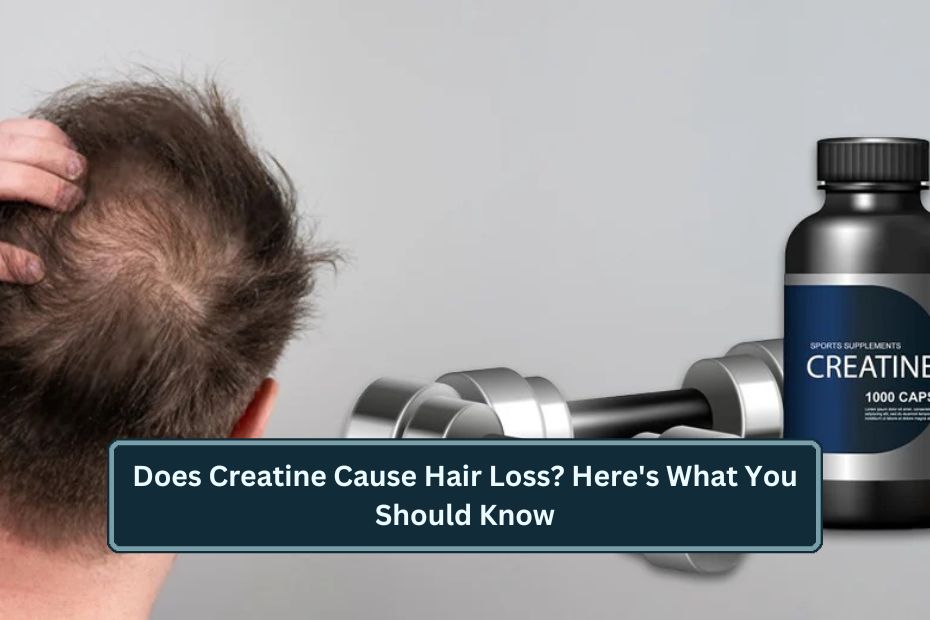Creatine is a popular supplement among athletes and fitness enthusiasts. It’s well-known for helping people build muscle and improve athletic performance. But some wonder if creatine can lead to hair loss. Let’s dive into the facts, what the science says, and how to make informed choices about using creatine.
What Is Creatine?
Creatine is a natural compound found in your muscles. Your body uses it to create energy, especially during high-intensity exercises like weightlifting or sprinting. Many people take creatine supplements to boost their energy levels, increase strength, and build muscle faster.
It works by helping your body produce more adenosine triphosphate (ATP), which powers your cells during tough workouts.
Does Creatine Cause Hair Loss?
The idea that creatine causes hair loss comes from a 2009 study on rugby players. The study found that creatine might raise levels of dihydrotestosterone (DHT), a hormone linked to male pattern baldness. But here are some key points to consider:
- Small Study Size: The study involved only a small group of athletes, so the findings aren’t conclusive.
- No Direct Evidence: The study only measured DHT levels, not actual hair loss.
- Genetics Play a Big Role: Hair loss is mostly influenced by your genes. People who are genetically prone to baldness may notice thinning hair, whether they take creatine or not.
So far, there’s no solid proof that creatine directly causes hair loss.
Can Hair Loss from Creatine Be Reversed?
If creatine does contribute to hair loss, it’s likely related to DHT levels. DHT can shrink hair follicles, leading to thinning hair in people who are genetically predisposed. The good news? Any hair loss caused by increased DHT from creatine is probably reversible. Once you stop taking creatine, your DHT levels should return to normal.
How to Prevent Hair Loss While Taking Creatine
If you’re worried about hair loss, here are some tips to reduce your risk:
- Stick to the Right Dosage: Take 3–5 grams daily, or follow a doctor’s advice.
- Stay Hydrated: Drink plenty of water to avoid dehydration and muscle cramps.
- Use DHT-Blocking Products: Over-the-counter shampoos or treatments like finasteride can help protect your hair follicles.
- Consult a Professional: If you have a family history of hair loss, talk to a dermatologist before starting creatine.
Other Side Effects of Creatine
Creatine is considered safe for most people when taken correctly, but it can have side effects, including:
- Stomach Issues: High doses may cause bloating, nausea, or diarrhea.
- Muscle Cramps: Dehydration or imbalanced electrolytes can lead to cramps.
- Kidney Concerns: Those with preexisting kidney conditions should be cautious.
- Temporary Creatine Suppression: Your body may produce less natural creatine while you’re supplementing, but this returns to normal after stopping use.
Alternatives to Creatine
If you’re looking for substitutes, here are some options:
- Beta-Alanine: Boosts endurance during workouts.
- Protein Supplements: Helps with muscle repair and growth.
- L-Carnitine: Supports fat metabolism and energy.
- Citrulline Malate: Improves blood flow and workout performance.
These alternatives have unique benefits but may not provide the same muscle-building effects as creatine.
While some worry about creatine causing hair loss, the evidence doesn’t strongly support this claim. Hair loss is usually determined by genetics, and most people won’t experience hair thinning from taking creatine. If you’re concerned, consult a healthcare professional and consider using DHT-blocking products.
Creatine remains one of the most researched and effective supplements for building muscle and improving athletic performance. By using it responsibly and staying informed, you can safely enjoy its benefits.
Visit Home

